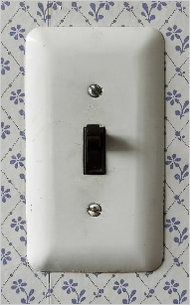When it comes to saving energy, many Americans seem to get it — and at the same time they don’t get it at all.

Suzanne DeChillo/The New York Times Switching off lights is not as effective as many consumers apparently think.
That’s the takeaway from a new study by researchers from Columbia University, Ohio State University and Carnegie Mellon University who found that people are far more likely to focus on switching off lights or unplugging appliances than on buying new bulbs or more efficient refrigerators. But people’s perceptions of the relative savings of various actions are significantly at variance with reality.
“Participants estimated that line-drying clothes saves more energy than changing the washer’s settings (the reverse is true) and estimated that a central air-conditioner uses only 1.3 times the energy of a room air-conditioner (in fact, it uses 3.5 times as much),” the researchers wrote.
Perhaps more to the point, people seem conditioned to think of energy savings as they would of saving money: that they can save by simply reducing use, the study found. But the biggest energy savings are tied to replacing things that use a lot of energy with things that use far less.
Habits like turning out the lights when leaving a room may be virtuous but don’t move the needle much on energy savings. Yet that action was cited by more of those surveyed (19.6 percent) than any other method of saving energy. By contrast, just 3.2 percent cited buying more energy-efficient appliances.
The top five behaviors listed by respondents as having a direct impact on energy savings (turning off the lights, riding a bike or using public transportation, changing the thermostat, “changing my lifestyle/not having children” and unplugging appliances or using them less) yield savings that are far outweighed by actions cited far less often, like driving a more fuel-efficient car.
“Relative to experts’ recommendations, participants were overly focused on curtailment rather than efficiency, possibly because efficiency improvements almost always involved research, effort and out-of-pocket costs (e.g. buying a new energy-efficient appliance), whereas curtailment may be easier to imagine and incorporate into one’s daily behaviors without any upfront costs,” wrote the authors, whose study was published in the most recent issue of the Proceedings of the National Academy of Sciences. The lead author was Shahzeen Z. Attari of Columbia University.
The gap between perception and reality narrows somewhat, but not dramatically, with a respondent’s self-identification as an environmentally aware person.
In this study, 471 of the 505 respondents, who were recruited through Craigslist, provided detailed demographic data about themselves. Forty-seven percent identified themselves as liberals, 31 percent as moderates and 22 percent as conservatives. Thirty-seven percent considered themselves environmentalists. But “participants who reported engaging in a greater number of pro-environmental energy-related behaviors had less accurate perceptions” about the value of these behaviors than the group as a whole did.
Perhaps it’s not surprising that people are not always quite as virtuous as they think they are. But amid the larger messages of the study, there was one tidbit that jumped out. About 2.8 percent of those responding said they could save energy by sleeping or relaxing more. That compares with 2.1 percent who said they could do so by insulating their homes.
Paging Comedy Central.